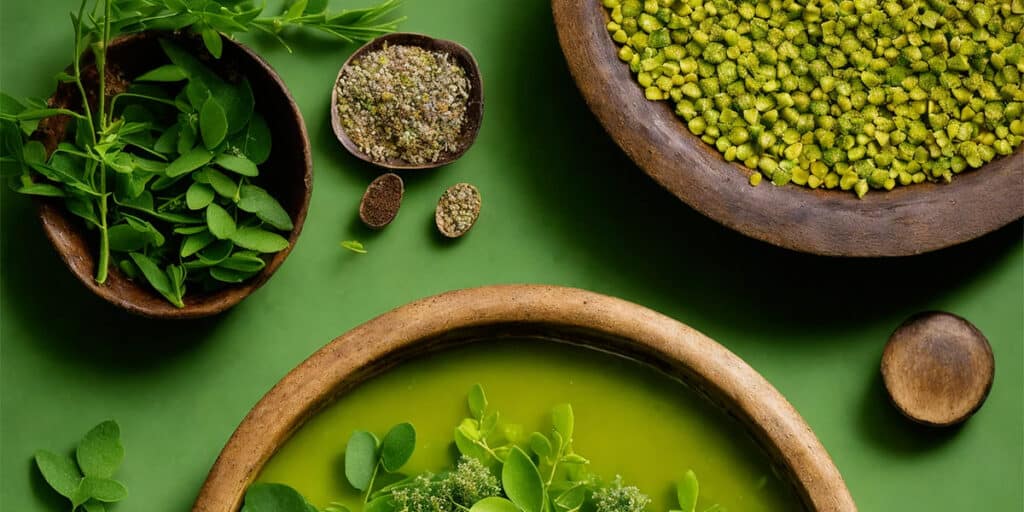Diabetes, a chronic condition marked by elevated blood sugar levels, extends its impact far beyond mere blood glucose control. It’s a multifaceted health challenge, often leading to a spectrum of complications that can affect nearly every part of the body.
This comprehensive guide aims to explore the holistic approaches to healing and managing these diabetes complications, offering insights beyond conventional medical treatments. Here, we delve into how lifestyle changes, dietary adjustments, and natural therapies can work in concert with traditional care to provide comprehensive support for those living with diabetes.
Understanding the Full Spectrum of Diabetes Complications
Diabetes complications can range from cardiovascular diseases to neuropathy, kidney damage, and more. These are not just mere offshoots of high blood sugar levels but are complex conditions influenced by various factors like long-term glycemic control, lifestyle, and genetic predisposition. For example, a study in the “Journal of Diabetes and Its Complications” indicates a strong correlation between prolonged high blood sugar and the risk of heart diseases in diabetics.
Diabetes management goes beyond just monitoring blood sugar levels. It involves a holistic approach that addresses the various complications that can arise. Here’s how:
Dietary Management: A balanced diet, low in processed sugars and high in fiber, can significantly impact managing diabetes complications, especially in preventing and managing cardiovascular diseases and kidney issues.
Physical Activity: Regular exercise is crucial in managing diabetes. It helps in maintaining a healthy weight, improving blood circulation, and reducing the risk of heart disease.
Stress Management: Stress has a direct impact on blood sugar levels. Techniques like yoga, meditation, and mindfulness can be effective in managing stress, thereby indirectly helping in controlling diabetes complications.
Herbal Remedies: Certain herbs have been known to have a beneficial impact on diabetes and its complications. For instance, cinnamon has been studied for its potential to improve blood sugar control and reduce heart disease risk.
Regular Monitoring and Check-ups: Keeping a close eye on blood sugar levels and regular health check-ups can help in early identification and management of potential complications.
Educational Programs: Knowledge is power. Being informed about diabetes and its complications can help in better self-management and decision-making.
Holistic Strategies to Mitigate Diabetes Complications
Holistic management of diabetes involves incorporating various strategies that work together to improve overall health and tackle specific complications.
Mind-Body Practices: Practices like Tai Chi and Qigong have shown benefits in improving blood sugar control and reducing stress.
Dietary Supplements: Omega-3 fatty acids, magnesium, and chromium supplements can aid in managing diabetes and its complications.
Complementary Therapies: Acupuncture and biofeedback are examples of complementary therapies that can help in pain management, especially for diabetic neuropathy.
Community Support: Joining diabetes support groups can provide emotional support and valuable insights into managing the condition.
| Intervention | Complication Addressed | Effectiveness |
|---|---|---|
| Mind-Body Practices | Stress, Blood Sugar Control | Highly Effective |
| Dietary Changes | Heart Disease, Kidney Issues | Very Effective |
| Regular Exercise | Overall Health, Weight Management | Effective |
| Herbal Remedies | Blood Sugar Control, Neuropathy | Moderately Effective |
Deeper Insights into Managing Specific Diabetes Complications
Managing each diabetes complication requires a targeted approach. Here are some insights:
Cardiovascular Health: Incorporating heart-healthy foods, regular cardio exercises, and stress reduction techniques.
Neuropathy Management: Regular foot care, pain management strategies, and maintaining optimal blood sugar levels.
Kidney Health: Monitoring kidney function, maintaining a diet low in sodium and proteins, and staying hydrated.
Eye Care: Regular eye examinations, controlling blood pressure and cholesterol levels, and avoiding smoking.
Holistic Healing for Diabetes Complications: Your FAQs Answered
What are the most common complications of diabetes?
Common complications include cardiovascular disease, neuropathy, kidney damage, and eye problems.
How does diet impact diabetes complications?
A balanced diet can help manage blood sugar levels and reduce the risk of complications like heart disease and kidney issues.
Can exercise reverse diabetes complications?
While it may not reverse complications, regular exercise can significantly reduce the risk and manage existing complications.
What role do stress management techniques play?
Stress management is crucial as stress can directly impact blood sugar levels and overall health.
Are herbal remedies effective in managing complications?
Certain herbs have potential benefits, but they should complement, not replace, conventional treatments.
How often should I monitor my health?
Regular monitoring and health check-ups are essential for early detection and management of complications.
Can lifestyle changes alone manage diabetes complications?
Lifestyle changes are vital but usually need to be combined with medical treatment for optimal management.
What are some mind-body practices beneficial for diabetes?
Practices like yoga, Tai Chi, and meditation can be beneficial.
Is there a specific diet recommended for diabetes complications?
A diet low in processed sugars and high in fiber, fruits, and vegetables is generally recommended.
Where can I find support for managing diabetes complications?
Diabetes support groups, healthcare providers, and educational programs can offer support.
Citations
- “Physical Activity/Exercise and Diabetes: A Position Statement of the American Diabetes Association.” Diabetes Care, November 2016, vol. 39, no. 11, pp. 2065-2079. This position statement reviews the benefits of physical activity in managing diabetes and preventing cardiovascular complications.
- “Curcumin and Diabetes: A Systematic Review.” Evidence-Based Complementary and Alternative Medicine, 2013, Article ID 636053. This review examines the potential of curcumin as a natural treatment for diabetes, focusing on its effects on blood glucose levels and insulin sensitivity.
- “Effects of Diet and Exercise in Preventing NIDDM in People With Impaired Glucose Tolerance: The Da Qing IGT and Diabetes Study.” Diabetes Care, April 1997, vol. 20, no. 4, pp. 537-544. This landmark study investigates the role of diet and exercise in preventing the onset of diabetes among individuals with impaired glucose tolerance.








